Aristocracy Quotes
Quotes tagged as "aristocracy"
Showing 1-30 of 128

“One of the saddest lessons of history is this: If we’ve been bamboozled long enough, we tend to reject any evidence of the bamboozle. We’re no longer interested in finding out the truth. The bamboozle has captured us. It’s simply too painful to acknowledge, even to ourselves, that we’ve been taken. Once you give a charlatan power over you, you almost never get it back.”
― The Demon-Haunted World: Science as a Candle in the Dark
― The Demon-Haunted World: Science as a Candle in the Dark
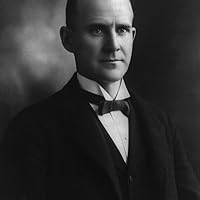
“I am opposing a social order in which it is possible for one man who does absolutely nothing that is useful to amass a fortune of hundreds of millions of dollars, while millions of men and women who work all the days of their lives secure barely enough for a wretched existence.”
―
―
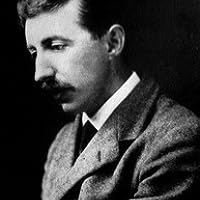
“I believe in aristocracy, though -- if that is the right word, and if a democrat may use it. Not an aristocracy of power, based upon rank and influence, but an aristocracy of the sensitive, the considerate and the plucky. Its members are to be found in all nations and classes, and all through the ages, and there is a secreat understanding between them when they meet. They represent the true human tradition, the one permanent victory of our queer race over cruelty and chaos. Thousands of them perish in obscurity, a few are great names. They are sensitive for others as well as themselves, they are considerate without being fussy, their pluck is not swankiness but power to endure, and they can take a joke.”
― Two Cheers for Democracy
― Two Cheers for Democracy

“Words have their own hierarchy, their own protocol, their own aristocratic titles, their own plebeian stigmas.”
― Death with Interruptions
― Death with Interruptions

“Fransisco, you're some kind of very high nobility, aren't you?" He answered, "Not yet. The reason my family has lasted for such a long time is that none of us has ever been permitted to think he is born a d'Anconia. We are expected to become one.”
― Atlas Shrugged
― Atlas Shrugged

“Ninety-nine per cent of traditional English literature concerns people who never have to worry about money at all. We always seem to be watching or reading about emotional crises among folk who live in a world of great fortune both in matters of luck and money; stories and fantasies about rock stars and film stars, sporting millionaires and models; jet-setting members of the aristocracy and international financiers.”
―
―
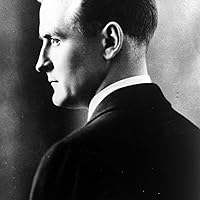
“Aristocracy's only an admission that certain traits which we call fine - courage and honor and beauty and all that sort of thing - can best be developed in a favorable environment, where you don't have the warpings of ignorance and necessity.”
― The Beautiful and Damned
― The Beautiful and Damned
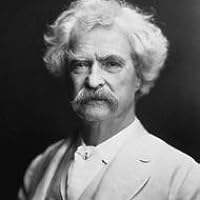
“It was pitiful for a person born in a wholesome free atmosphere to listen to their humble and hearty outpourings of loyalty toward their king and Church and nobility; as if they had any more occasion to love and honor king and Church and noble than a slave has to love and honor the lash, or a dog has to love and honor the stranger that kicks him! Why, dear me, ANY kind of royalty, howsoever modified, ANY kind of aristocracy, howsoever pruned, is rightly an insult; but if you are born and brought up under that sort of arrangement you probably never find it out for yourself, and don't believe it when somebody else tells you. It is enough to make a body ashamed of his race to think of the sort of froth that has always occupied its thrones without shadow of right or reason, and the seventh-rate people that have always figured as its aristocracies -- a company of monarchs and nobles who, as a rule, would have achieved only poverty and obscurity if left, like their betters, to their own exertions...
The truth was, the nation as a body was in the world for one object, and one only: to grovel before king and Church and noble; to slave for them, sweat blood for them, starve that they might be fed, work that they might play, drink misery to the dregs that they might be happy, go naked that they might wear silks and jewels, pay taxes that they might be spared from paying them, be familiar all their lives with the degrading language and postures of adulation that they might walk in pride and think themselves the gods of this world. And for all this, the thanks they got were cuffs and contempt; and so poor-spirited were they that they took even this sort of attention as an honor.”
―
The truth was, the nation as a body was in the world for one object, and one only: to grovel before king and Church and noble; to slave for them, sweat blood for them, starve that they might be fed, work that they might play, drink misery to the dregs that they might be happy, go naked that they might wear silks and jewels, pay taxes that they might be spared from paying them, be familiar all their lives with the degrading language and postures of adulation that they might walk in pride and think themselves the gods of this world. And for all this, the thanks they got were cuffs and contempt; and so poor-spirited were they that they took even this sort of attention as an honor.”
―
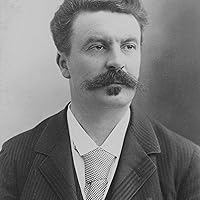
“She was simple, not being able to adorn herself, but she was unhappy, as one out of her class; for women belong to no caste, no race, their grace, their beauty and their charm serving them in place of birth and family. Their inborn finesse, their instinctive elegance, their suppleness of wit, are their only aristocracy, making some daughters of the people the equal of great ladies.”
― A Piece of String / The Necklace
― A Piece of String / The Necklace
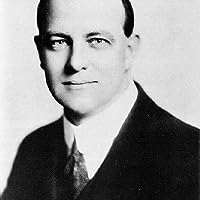
“I say, you don't know how I could raise fifty quid somehow, do you?"
"Why don't you work?"
"Work?" said young Bingo, surprised. "What, me? No, I shall have to think of some way.”
― The Inimitable Jeeves
"Why don't you work?"
"Work?" said young Bingo, surprised. "What, me? No, I shall have to think of some way.”
― The Inimitable Jeeves
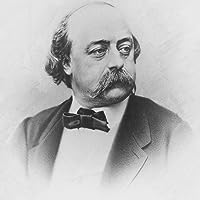
“ There was an air of indifference about them, a calm produced by the gratification of every passion; and through their manners were suave, one could sense beneath them that special brutality which comes from the habit of breaking down half-hearted resistances that keep one fit and tickle one’s vanity—the handling of blooded horses, the pursuit of loose women. ”
― Madame Bovary
― Madame Bovary

“There is hardly any political question in the United States that sooner or later does not turn into a judicial question. From that, the obligation that the parties find in their daily polemics to borrow ideas and language from the judicial system. Since most public men are or have formerly been jurists, they make the habits and the turn of ideas that belong to jurists pass into the handling of public affairs. The jury ends up by familiarizing all classes with them. Thus, judicial language becomes, in a way, the common language; so the spirit of the jurist, born inside the schools and courtrooms, spreads little by little beyond their confines; it infiltrates all of society, so to speak; it descends to the lowest ranks, and the entire people finishes by acquiring a part of the habits and tastes of the magistrate.”
― Democracy in America
― Democracy in America
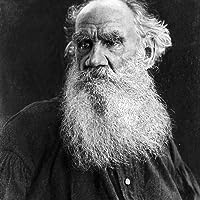
“Wait, wait,' he began, interrupting Oblonsky. 'Aristocratism, you say. But allow me to ask, what makes up this aristocratism of Vronsky or whoever else it may be - such aristocratism that I can be scorned? You consider Vronsky an aristocrat, but I don't. A man whose father crept out of nothing by wiliness, whose mother, God knows who she didn't have liaisons with... No, excuse me, but I consider myself an aristocrat and people like myself, who can point to three or four honest generations in their families' past, who had a high degree of education (talent and intelligence are another thing), and who never lowered themselves before anyone, never depended on anyone, as my father lived, and my grandfather. And I know many like that. You find it mean that I count the trees in the forest, while you give away thirty thousand to Ryabinin; but you'll have rent coming in and I don't know what else, while I won't, and so I value what I've inherited and worked for... We're the aristocrats, and not someone who can only exist on hand-outs from the mighty of this world and can be bought for twenty kopecks.
'But who are you attacking? I agree with you,' said Stepan Arkadyich sincerely and cheerfully, though he felt Levin included him among those who could be bought for twenty kopecks.”
― Anna Karenina
'But who are you attacking? I agree with you,' said Stepan Arkadyich sincerely and cheerfully, though he felt Levin included him among those who could be bought for twenty kopecks.”
― Anna Karenina

“Laws were made to establish a gradation of ranks; but it was soon found that the soil of America was opposed to a territorial aristocracy. To bring that refractory land into cultivation, the constant and interested exertions of the owner himself were necessary; and when the ground was prepared, its produce was found to be insufficient to enrich a proprietor and a farmer at the same time. The land was then naturally broken up into small portions, which the proprietor cultivated for himself. Land is the basis of an aristocracy, which clings to the soil that supports it; for it is not by privileges alone, nor by birth, but by landed property handed down from generation to generation, that an aristocracy is constituted. A nation may present immense fortunes and extreme wretchedness; but unless those fortunes are territorial, there is no true aristocracy, but simply the class of the rich and that of the poor.”
― Democracy in America
― Democracy in America
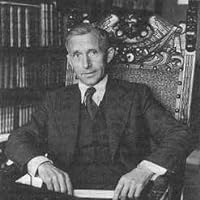
“Certainly, a clear line must be preserved by strict discipline, and on the other hand the men must know that everything is done for them that hard times permit. On the top of that it follows that, among real men, what counts is deeds, not words; and then it comes of itself, when such are the relations between men and their leaders, that instead of opposition there is harmony between them. The leader is merely a clearer expression of the common will and an example of life and death. And there is no science in all this. It is a practical quality, the simple manly commonsense that is native to a sound and vigorous race.”
― Copse 125: A Chronicle from the Trench Warfare of 1918
― Copse 125: A Chronicle from the Trench Warfare of 1918

“Aristocracy naturally leads the human mind to the contemplation of the past, and fixes it there. Democracy, on the contrary, gives men a sort of instinctive distaste for what is ancient. In this respect aristocracy is far more favorable to poetry; for things commonly grow larger and more obscure as they are more remote; and, for this two-fold reason, they are better suited to the delineation of the ideal.”
― Democracy in America
― Democracy in America

“Lady Sylvia McCordle: Mr Weissman -- Tell us about the film you're going to make.
Morris Weissman: Oh, sure. It's called "Charlie Chan In London". It's a detective story.
Mabel Nesbitt: Set in London?
Morris Weissman: Well, not really. Most of it takes place at a shooting party in a country house. Sort of like this one, actually. Murder in the middle of the night, a lot of guests for the weekend, everyone's a suspect. You know, that sort of thing.
Constance: How horrid. And who turns out to have done it?
Morris Weissman: Oh, I couldn't tell you that. It would spoil it for you.
Constance: Oh, but none of us will see it.”
― Gosford Park: The Shooting Script
Morris Weissman: Oh, sure. It's called "Charlie Chan In London". It's a detective story.
Mabel Nesbitt: Set in London?
Morris Weissman: Well, not really. Most of it takes place at a shooting party in a country house. Sort of like this one, actually. Murder in the middle of the night, a lot of guests for the weekend, everyone's a suspect. You know, that sort of thing.
Constance: How horrid. And who turns out to have done it?
Morris Weissman: Oh, I couldn't tell you that. It would spoil it for you.
Constance: Oh, but none of us will see it.”
― Gosford Park: The Shooting Script

“Культура империи была аристократична, но аристократизм вообще есть основа всякой высокой культуры. (Вот почему, кстати, народы, по какой-либо причине оказавшиеся лишенными или никогда не имевшие собственной «узаконенной» элиты — дворянства и т.п., не создали, по существу, ничего достойного мирового уровня, во всяком случае, их вклад в этом отношении несопоставим с вкладом народов, таковую имевшими.) Сама сущность высоких проявлений культуры глубоко аристократична: лишь немногие способны делать что-то такое, чего не может делать большинство (будь то сфера искусства, науки или государственного управления). Наличие соответствующей среды, свойственных ей идеалов и представлений абсолютно необходимо как для формирования и поддержания потребности в существовании высоких проявлений культуры, так и для стимуляции успехов в этих видах деятельности лиц любого социального происхождения.”
― Почему РФ - не Россия
― Почему РФ - не Россия

“Compare with Greek art, modern classical art is lacking in warmth and immediacy; it has a derived, retrospective, and, even in the Renaissance, a more or less classicistic character. It It is the reflection of a society which, filled with reminiscences of Roman heroism and medieval chivalry, tries to appear to be something which it is not, by following an artificially produced social and moral code, and which stylizes the whole pattern of its life in accordance with this fictitious scheme. Classical art describes this society as it wants to see itself and as it wants to be seen. There is hardly a feature in this art which would not, on closer examination, prove to be anything more than the translation into artistic terms of the aristocratic, conservative ideals cherished by this society striving for permanence and continuity. The whole artistic fromalism of the Cinquecento merely corresponds to the formalized system of moral conceptions and decorum which the upper class of the period imposes on itself. Just as the aristocracy and the aristocratically minded circles of society subject life to the rule of a formal code, in order to preserve it from the anarchy of the emotions, so they also submit the expression of the emotions in art to the censorship of definite, abstract, and impersonal forms.”
― The Social History of Art: Volume 2: Renaissance, Mannerism, Baroque
― The Social History of Art: Volume 2: Renaissance, Mannerism, Baroque

“When the aristocracy catches a cold, the working class dies pneumonia.”
― 12 Rules for Life: An Antidote to Chaos
― 12 Rules for Life: An Antidote to Chaos
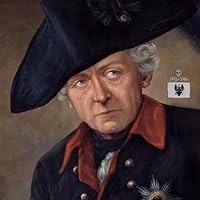
“I felt neither ill or kind intent... Tell me, have you ever stood alone before great vistas of nature, and marveled at its beauty? Its power and indifference. We have our nobility, but this was more aristocratic than any feudal or caste system. Even if the rabble who will tolerate nothing over them succeeded in overthrowing all aristocracies, they would still have to allow one to exist. Empires and laws will fall, but the rule of nature shall always be the apex to which all others are subject.”
― Strife and Sublimity: Tales of Germanics and Slavs
― Strife and Sublimity: Tales of Germanics and Slavs

“найнедосконаліша форма урядування із законних — це демократія; а із свавільних форм урядування вона найкраща: бо в першому випадку вона мало робить добра, а в другому — мало робить лиха; отже, демократія гірша від монархії й аристократії, але краща від тиранії та олігархії. Отже, форми урядування стосовно їх корисности стоятимуть в такому порядку: закон - монархія, аристократія, демократія; сваволя - демократія, олігархія, тиранія.”
― Історія філософії права. Філософія права. Філософський щоденник
― Історія філософії права. Філософія права. Філософський щоденник

“Let us see whether democracy which makes halls cannot surpass the aristocracy which carved statues.”
― The London Scene: Six Essays on London Life
― The London Scene: Six Essays on London Life

“But who took the Elder Houses seriously any longer? Most of the current members saw it as nothing more than a genealogical resource and an excuse for the occasional gala.”
― Bloodline
― Bloodline

“Aristocracy means ‘rule of the best’, and I can’t think of any company in which Chingford would be counted as best, including the average gaol. Yet the hereditary principle demands we grant power, authority, and vast swathes of land to a man who couldn’t run a whelk stall if you gave him a copy of How To Run A Whelk Stall with corners turned down to mark the good bits.”
― Subtle Blood
― Subtle Blood

“And then there's that double-barreled name a lot of them toffs have, like they have to drag their ancestors up from the grave so we all know who they're related to.”
― The White Lady
― The White Lady
“All political systems, excepting direct democracy, are oligarchical. The question today is not whether the few or the many will rule the state. The question, said Max Weber, is what kind of oligarchy will it be? The favored answer, since time immemorial, has been “aristocracy,” or “rule by the best.” But who are the “best”? The warriors? The priests? The rich? The intellectuals? Monarchists hold that the best person is ordained by God or the Church, especially on account of his lineage. Given the circumstances of the American Revolution, America’s Founding Fathers were opposed to monarchy and aristocracy; therefore, presidents would be elected every four years, congressmen every two years, and senators would be appointed. The election mechanism, the independent power of the states, and the courts, were conceived as checks on executive and congressional power. Under the Constitution, America is only a democracy one day in every two years; that is, in November, on a Tuesday that follows the first Monday, of every even numbered year. What the Framers of the Constitution feared, above all, was ochlocracy (i.e., mob rule) where the majority might pass a bill of expropriation against the propertied classes. This, they knew from ancient history, would end in a leveling despotism.”
―
―

“Blue Blood & Blue Collar (The Sonnet)
I have nothing against blue blood,
any more than I'm against blue collar.
But blue blood think honor is an heirloom,
while blue collar earn their rightful honor.
That's what I call true human character,
unreliant on some fictitious identity.
Every human must earn their admittance,
into the civilized realm of humanity.
I can still accept any blood, blue or otherwise,
if they have the decency to acknowledge atrocity.
Otherwise, all blue blood are canine incarnate,
unworthy of acknowledgment of their existentiality.
King and president, ceo and janitor,
all are equal, only behavior merits honor.”
― Brit Actually: Nursery Rhymes of Reparations
I have nothing against blue blood,
any more than I'm against blue collar.
But blue blood think honor is an heirloom,
while blue collar earn their rightful honor.
That's what I call true human character,
unreliant on some fictitious identity.
Every human must earn their admittance,
into the civilized realm of humanity.
I can still accept any blood, blue or otherwise,
if they have the decency to acknowledge atrocity.
Otherwise, all blue blood are canine incarnate,
unworthy of acknowledgment of their existentiality.
King and president, ceo and janitor,
all are equal, only behavior merits honor.”
― Brit Actually: Nursery Rhymes of Reparations
All Quotes
|
My Quotes
|
Add A Quote
Browse By Tag
- Love Quotes 98k
- Life Quotes 76.5k
- Inspirational Quotes 73k
- Humor Quotes 44k
- Philosophy Quotes 30k
- Inspirational Quotes Quotes 27k
- God Quotes 26.5k
- Truth Quotes 24k
- Wisdom Quotes 23.5k
- Romance Quotes 23.5k
- Poetry Quotes 22.5k
- Death Quotes 20k
- Life Lessons Quotes 19.5k
- Happiness Quotes 18.5k
- Hope Quotes 18k
- Faith Quotes 18k
- Quotes Quotes 17.5k
- Inspiration Quotes 17k
- Spirituality Quotes 15k
- Religion Quotes 15k
- Motivational Quotes 15k
- Writing Quotes 15k
- Relationships Quotes 14.5k
- Life Quotes Quotes 14.5k
- Love Quotes Quotes 14k
- Success Quotes 13.5k
- Time Quotes 12.5k
- Motivation Quotes 12.5k
- Science Quotes 11.5k
- Motivational Quotes Quotes 11.5k



